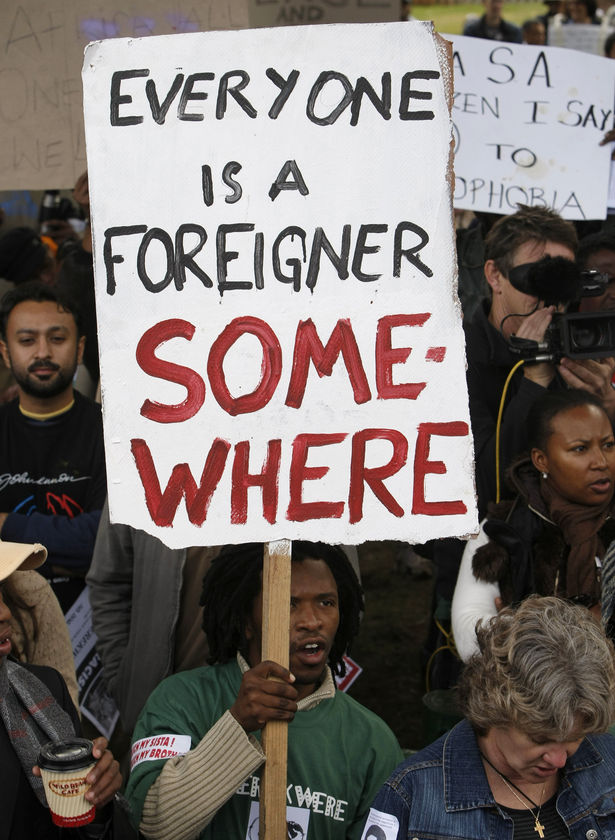Everyday war, poverty and political unrest force people to leave their homelands in search of asylum and refuge in other countries. The United Nations estimates that by the end of 2014, almost 60 million people were forcibly displaced worldwide as a result of persecution, conflict generalised violence or human rights violations.
Currently Turkey is the largest refugee hosting country with almost two million refugees. South Africa also hosts a number of refugees and asylum seekers from countries currently experiencing conflict such as Burundi and Somalia.
“South Africa receives asylum seekers from Somalia, Democratic republic of Congo (DRC), Angola, Zimbabwe and Burundi as well,” explains Pumla Rulashe, the public information officer at the UN High Commission for Refugees in Pretoria.
The South African government is charged with protecting and assisting refugees and thus, the country’s borders are open to such persons who have been displaced.
“The first step that the SA government does in assisting the asylum seekers is to document and legalise their position within the country,” Rulashe continued.
The position of the refugee or asylum seeking must be regularised through the home affairs office in South Africa. Currently over 60 million people are displaced globally and of that almost 20 million people are classed as refugees.
Asylum seeker vs refugee
An asylum seeker is someone who is seeking international protection, but whose claim for refugee status has not yet been determined. A refugee is a person whose country can no longer offer him the protection he as a citizen is entitled to and thus is displaced as a result of the situation within his homeland.
“In South Africa we have in the region of 112 000 refugees and an estimated 463 000 asylum seekers,” Rulashe went further.
“One of the main reasons for people seeking refuge in South Africa is the peace and democracy that exist in the country.”
Even though there has been a spat of xenophobic attacks in the recent months, there is a possibility that refugees are still safer in South Africa than in the country from which they originate.
“What they (refugees) want is to be able to live their life in peace and security and raise their family in such an environment and believe that they could find economic opportunities within South Africa,” Rulashe added.
Despite the rising levels of unemployment in South Africa refugees still manage to sometimes find employment.
“Very few are able to get formal employment, many get employed as waiters so basically they will take the jobs that South Africans might not be so interested in,” Rulashe explained.
Furthermore Rulashe added that foreign nationals make do with establishing small businesses such as spaza shops.
A world at war
Governments from all over the world and in South Africa struggle to maintain a balance between controlling borders and offering protection to displaced people. More than half of the worlds estimated refugees come from three countries, namely the Syrian Arab Republic, Afghanistan and Somalia.
Whilst South Africa would be able to accept refugees from those countries, most refugees within the region come from fellow African nations.
“Refugees generally do enter the country illegally, but they have to present themselves to the nearest police station or home affairs office and state that they are seeking asylum,” Rulashe said.
“From there they will then get some form of documentation to legalise their position in South Africa to the point where they are legalised as refugees or rejected as refugees.”
South Africa has laws implemented that allow refugees freedom of movement as such they have the right to work and the right to access social assistance.
Of the 60 million forcibly displaced persons in the world, almost 20 million are refugees, and 40 million are internally displaced, meaning that they still remain in their homeland without the protection of government.
South Africa has seen a number of missions enter these conflict zones in order to offer assistance to those suffering as a result of war, occupation and genocide. Currently, a humanitarian mission from South Africa is enroute to provide relief aid in Syria. VOC (Umarah Hartley)






 WhatsApp us
WhatsApp us 

